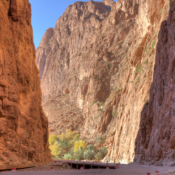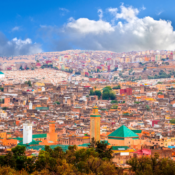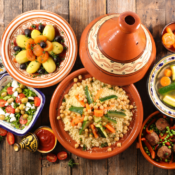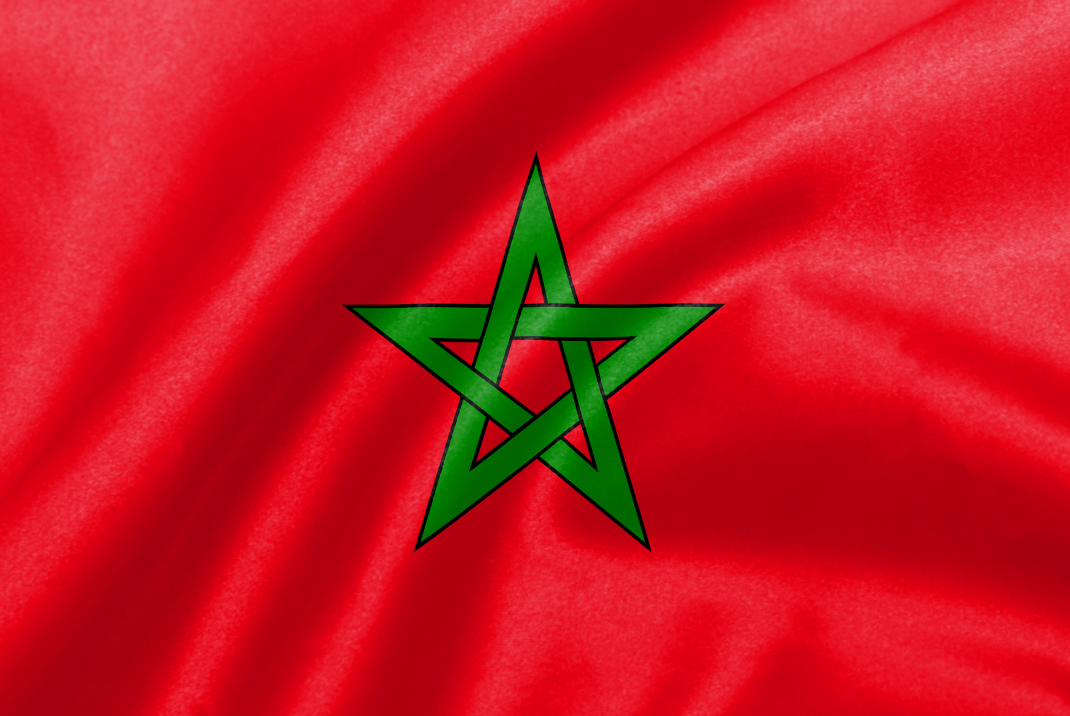
Moroccan Traditions and Festivals You Should Experience
Morocco is a land steeped in history, culture, and vibrant traditions. From the bustling markets of Marrakech to the peaceful desert dunes of the Sahara, Morocco offers visitors a rich cultural tapestry. One of the best ways to experience the soul of Morocco is by immersing yourself in its Moroccan traditions and festivals. These celebrations are a window into the country’s heritage, offering unforgettable experiences that connect you to its people, history, and customs. Here’s a guide to some of the most remarkable Moroccan traditions and festivals that you shouldn’t miss.
Table of Contents
1. The Marrakech International Film Festival
One of Morocco’s most prestigious cultural events, the Marrakech International Film Festival is a celebration of cinema from around the world. Held annually in Marrakech, the festival draws renowned filmmakers, actors, and cinema lovers. It’s an excellent opportunity to see the works of both established and emerging talents while experiencing the magic of Moroccan hospitality.
Attending this festival gives you the chance to explore Moroccan film culture while enjoying the beauty of Marrakech’s historical venues, including the stunning Jemaa el-Fnaa Square. The festival also hosts open-air screenings, red carpet events, and workshops, making it a must-visit for film enthusiasts.
When to Go: November
2. Eid al-Fitr and Eid al-Adha -Moroccan Traditions and Festivals
Morocco, like many Muslim-majority countries, celebrates two significant religious holidays: Eid al-Fitr and Eid al-Adha.
- Eid al-Fitr marks the end of Ramadan, the Islamic holy month of fasting, and is a time for feasting, gift-giving, and visiting family. Streets are adorned with lights, and families prepare elaborate meals to share with loved ones.
- Eid al-Adha, also known as the Festival of Sacrifice, honors the willingness of Ibrahim (Abraham) to sacrifice his son as an act of obedience to God. Families slaughter a sheep, cow, or camel, and the meat is shared with friends, family, and the less fortunate.
These celebrations are deeply rooted in Moroccan traditions and offer a glimpse into the country’s spiritual and communal values.
When to Go: Eid al-Fitr is celebrated at the end of Ramadan (dates vary each year), and Eid al-Adha is about two months later.
3. The Fantasia Festival (Moussem of Tan-Tan)
The Fantasia Festival, also known as the Moussem of Tan-Tan, is a dazzling celebration of Moroccan Berber culture. Held in the southern town of Tan-Tan, this festival brings together various tribes from across the country, showcasing Moroccan traditions such as horse riding, music, and dancing.
The highlight of the festival is the Fantasia, a traditional equestrian performance where horse riders charge across the field, firing guns into the air as part of a historical military drill. The festival is also an opportunity to enjoy the unique flavors of southern Moroccan cuisine, such as lamb tagine and mint tea.
When to Go: May
4. Mawlid al-Nabi (The Prophet’s Birthday)
Mawlid al-Nabi celebrates the birth of the Prophet Muhammad and is an important occasion for Muslims across the world. In Morocco, the celebration includes special prayers, feasts, and the lighting of candles. The streets are often filled with colorful decorations, and homes are adorned with flowers and lights.
People gather in large groups to listen to religious lectures and enjoy sweet treats like chebakia (a honey-drenched pastry) and ghriba cookies. This festival is a beautiful example of how Moroccan traditions blend spirituality with community joy.
When to Go: The Islamic month of Rabi al-Awwal (dates vary each year)
5. Imilchil Marriage Festival
The Imilchil Marriage Festival is a unique event held in the High Atlas Mountains, where Amazigh (Berber) tribes gather annually. This festival celebrates love and the tradition of arranged marriages. Young men and women from surrounding villages come together to find a partner.
The festival is steeped in history and includes tribal music, dances, and ceremonies, with the beldi (traditional) dress adding a beautiful touch of authenticity. It’s a rare opportunity to witness a centuries-old tradition that continues to thrive in modern Morocco.
When to Go: September
6. The Rose Festival of Kalaat M’Gouna
The Rose Festival in Kalaat M’Gouna is an enchanting celebration of the valley’s roses, which are integral to Moroccan perfume and cosmetic industries. The festival sees locals and tourists alike come together to celebrate the harvest of these fragrant flowers.
Events include rose water production demonstrations, musical performances, and traditional dances. It’s a great way to experience the scenic beauty of the Dades Valley while enjoying the local hospitality.
When to Go: May
7. The International Gnawa Festival
The Gnawa Festival in Essaouira celebrates the Gnawa music and culture, a blend of African, Berber, and Arab influences. Gnawa music, characterized by its hypnotic rhythms and spiritual themes, is performed by musicians playing traditional instruments such as the gimbri (a three-stringed bass) and krakebs (metal castanets).
The festival draws international musicians and artists who collaborate with Gnawa performers, creating a magical atmosphere of music and dance.
When to Go: June
8. The Tanjazz Festival in Tangier
The Tanjazz Festival is one of Morocco’s leading jazz festivals, held annually in the coastal city of Tangier. The event attracts jazz musicians from all over the world, blending the sounds of traditional jazz with Moroccan influences.
With performances set against the stunning backdrop of the Mediterranean coast, this festival is perfect for those who want to experience Morocco’s diverse music scene.
When to Go: September
9. The Cherry Festival of Sefrou
Held in Sefrou, one of Morocco’s oldest towns, the Cherry Festival celebrates the cherry harvest. This colorful event features parades, local dances, traditional music, and a variety of food stalls selling delicious cherry-based products.
Sefrou’s charming medina and scenic location near the Middle Atlas mountains make it an ideal place to witness Moroccan traditions while enjoying the natural beauty of the region.
When to Go: June
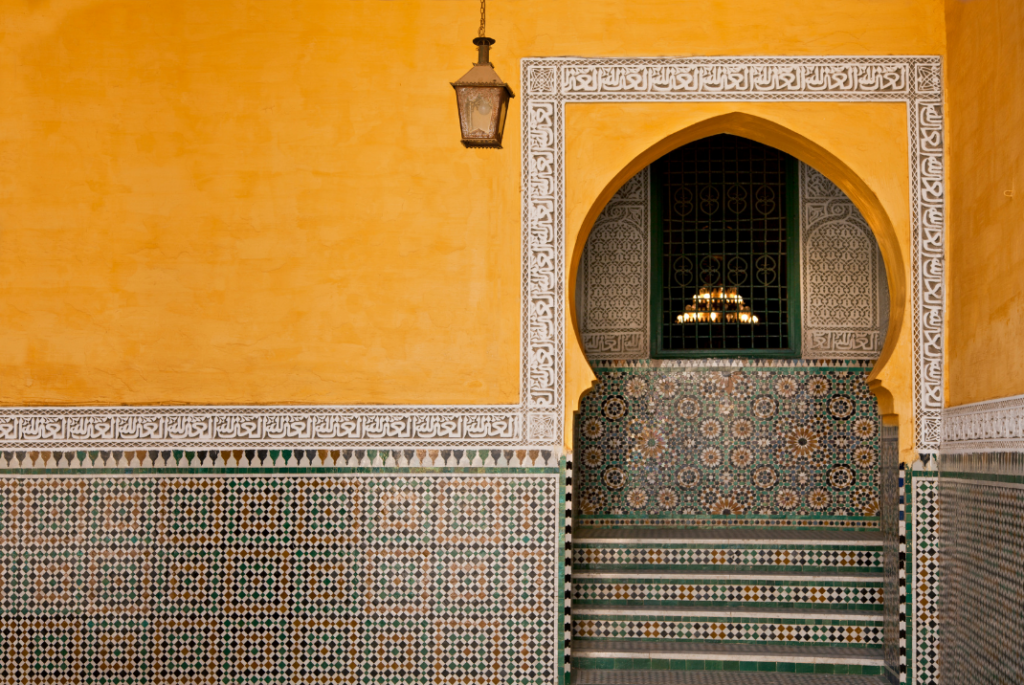
10. The Moussem of Fez
The Moussem of Fez is a grand celebration of Islamic and Moroccan culture. The festival features a variety of performances, including music, dances, and processions. One of the most notable events during the festival is the Sufi ceremony, where whirling dervishes perform their spiritual dances.
Visitors can also enjoy traditional Moroccan food, as well as explore the city’s vibrant souks and historical sites.
When to Go: June
Finally, Morocco is a country full of cultural richness and traditions and festivals that provide visitors with unforgettable experiences. Whether you’re watching the Fantasia Festival in Tan-Tan, enjoying the spiritual beauty of Mawlid al-Nabi, or discovering the vibrant music scene at the Gnawa Festival, each celebration gives you a deeper connection to Moroccan heritage and hospitality.
These Moroccan traditions and festivals not only offer a glimpse into Morocco’s historical and cultural tapestry but also reveal the warmth and generosity of the Moroccan people. Their hospitality is world-renowned, and the respect they have for their guests is evident in every celebration, every meal, and every interaction.
Ready to experience the magic of Morocco’s traditions and festivals? Let DesertTrail Adventures take you on a journey through the heart of Moroccan culture.
Your Trusted Moroccan Ambassadors: Contact Us for Expert Tips & Unforgettable Experiences!
We’re here to guide you every step of the way, offering insider advice and personalized tips to help you explore Morocco like a local. Whether you need travel recommendations, cultural insights, or practical advice, consider us your go-to resource for an unforgettable Moroccan adventure!
WhatsApp: +212694525668
Email: [email protected]
Website: www.deserttrailadventures.com
Moroccan traditions and festivals

